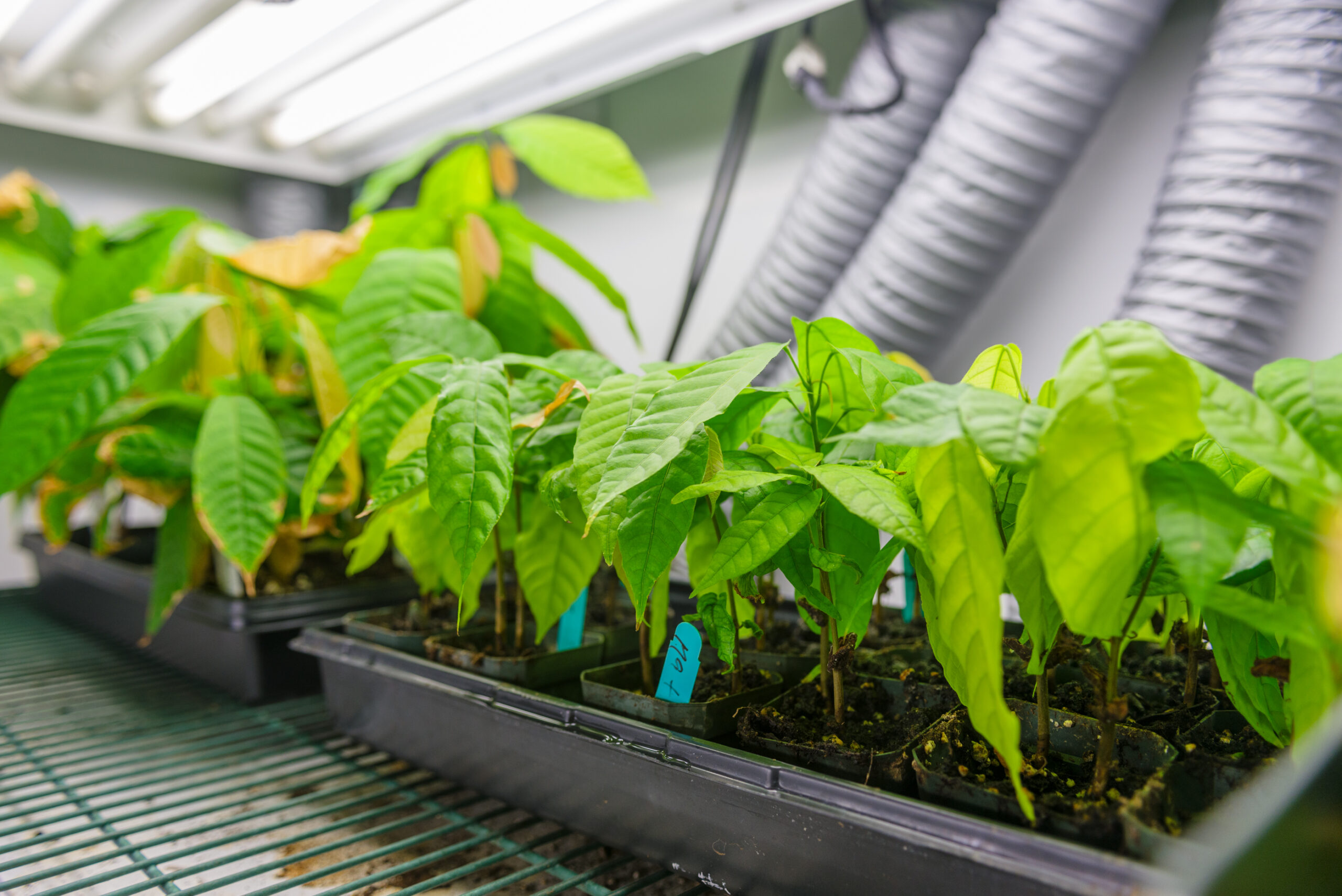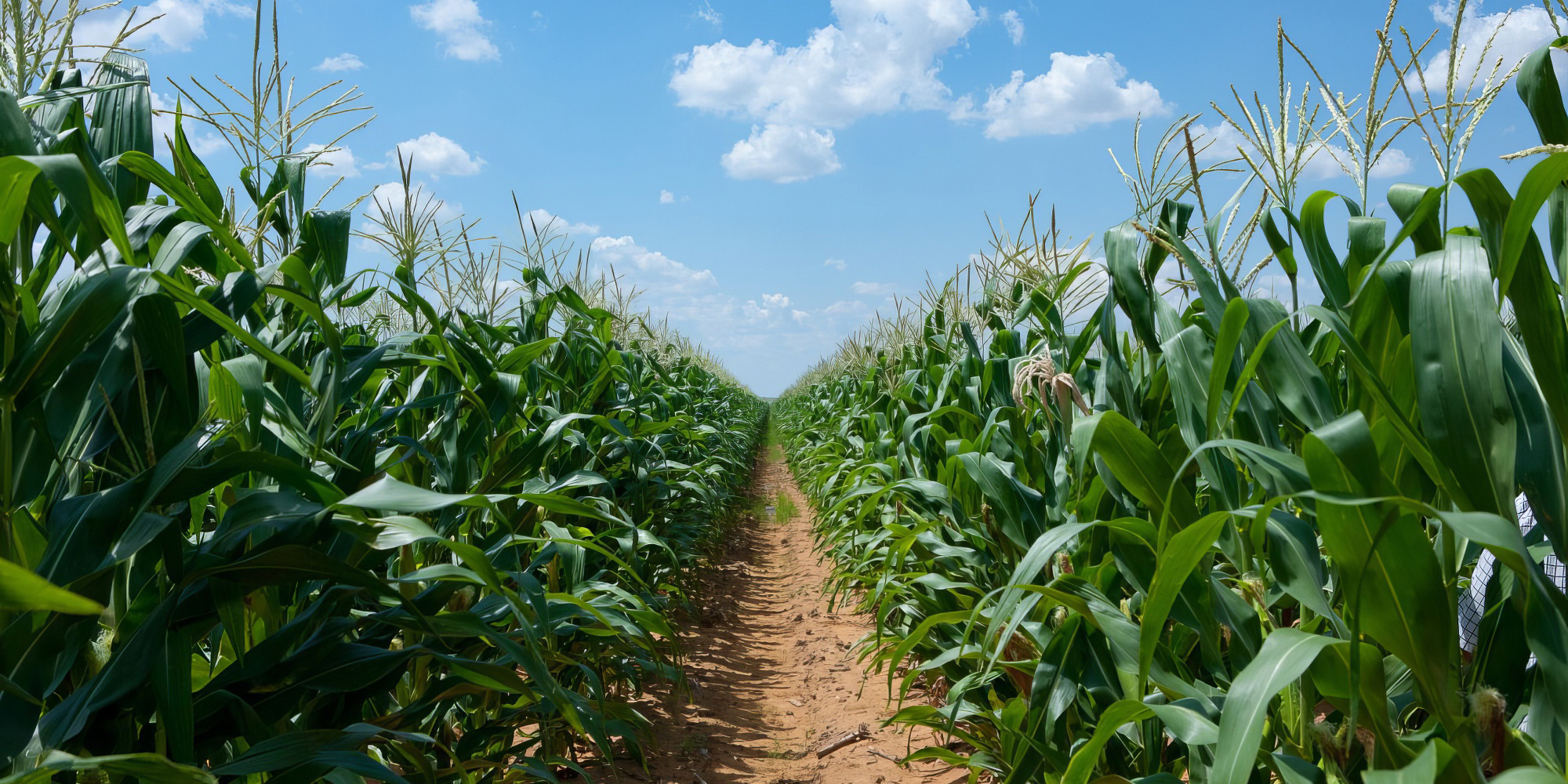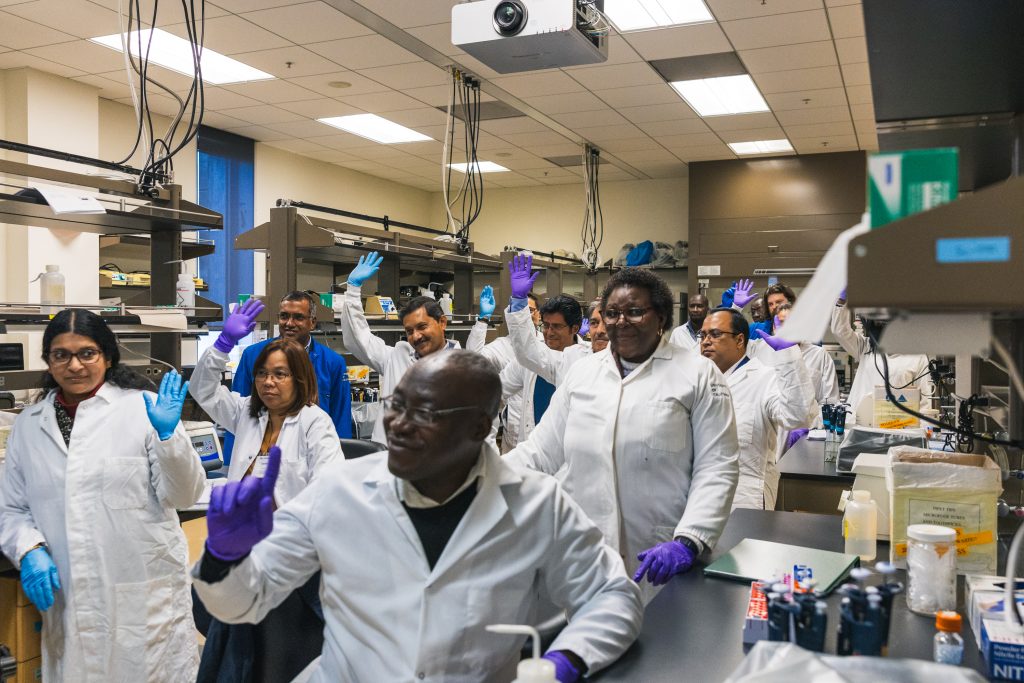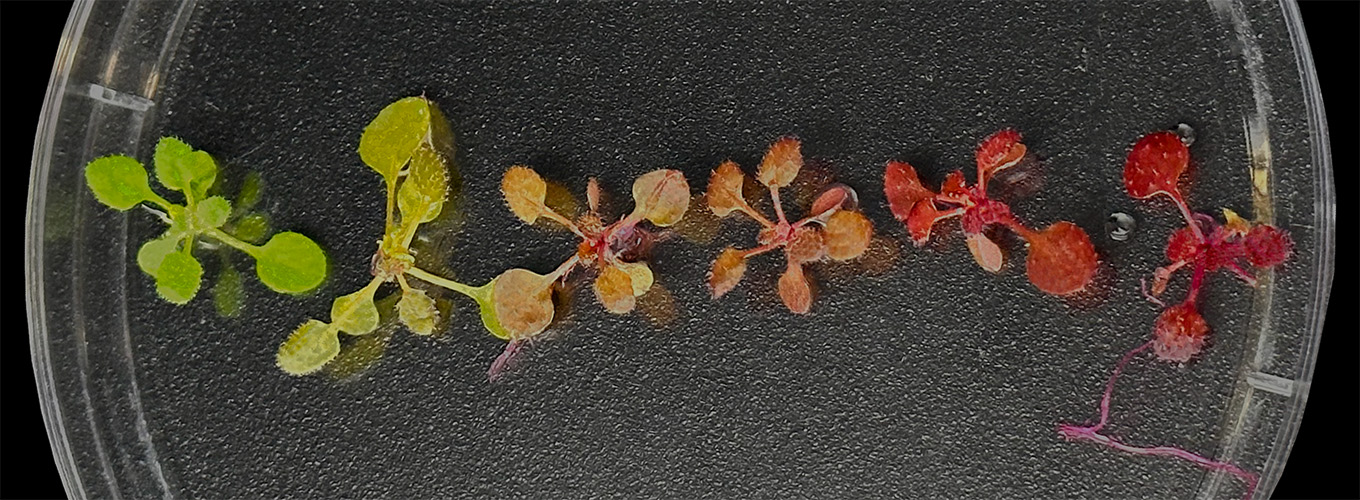Climate & Sustainable Agriculture
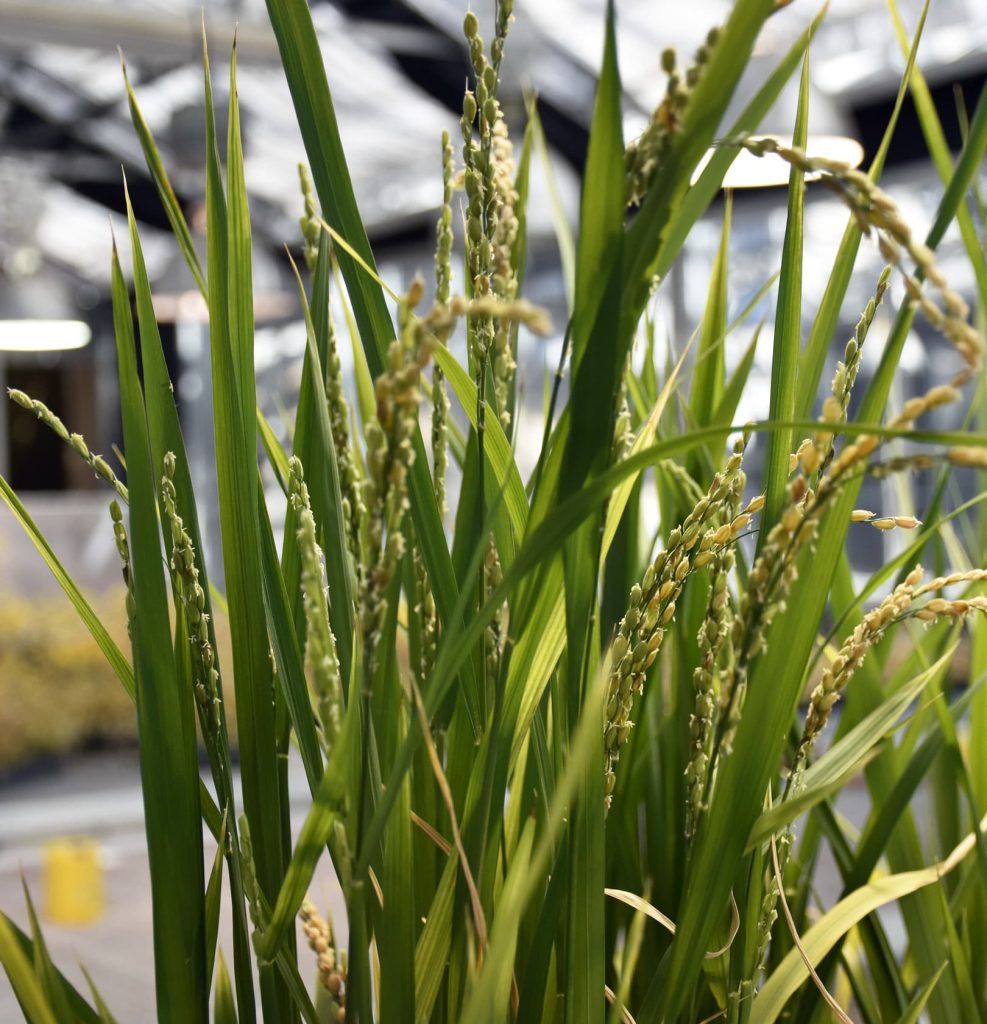
Key Goals
Discovery: Explore the genetic basis of crop plant disease resistance, climate change tolerance, and microbial carbon capture
Delivery: Create new, efficient methods of delivering CRISPR to crop plants and making precise, non-transgenic edits to plant genomes
Development: Engineer plants that resist infection, tolerate drought, minimize farmer inputs, and reduce greenhouse gas emissions. Study and engineer microbiomes to reduce emissions from livestock and soils.
Translation: Ensure that genomic innovations in climate and agriculture reach the real world at scale and meet community needs
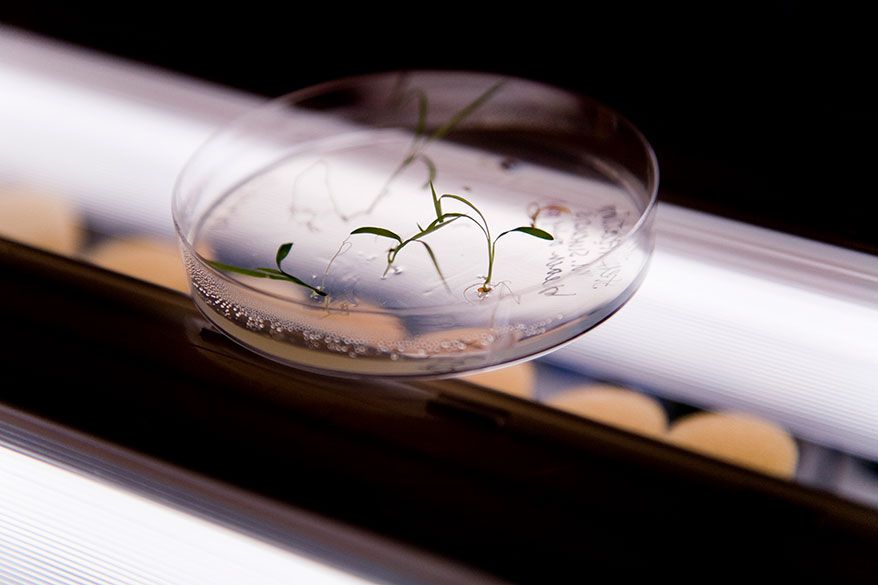
Plant Genomics & Transformation Facility
Located in the Innovative Genomics Institute Building at UC Berkeley, the Plant Genomics and Transformation Facility (PGTF) has established transformation and genome editing protocols for over 25 major crop species and collaborates with agricultural institutions around the world.
Flagship Projects
CRISPR for Climate Change
We are advancing multiple projects that apply CRISPR and genomic tools to the climate crisis.
Genome engineering can help agriculture both mitigate and adapt to climate change by enhancing the ability of plants and soils to capture atmospheric carbon, reducing emissions from livestock and soils, minimizing the need for farmer inputs, and improving the ability of crops to adapt to a changing climate.
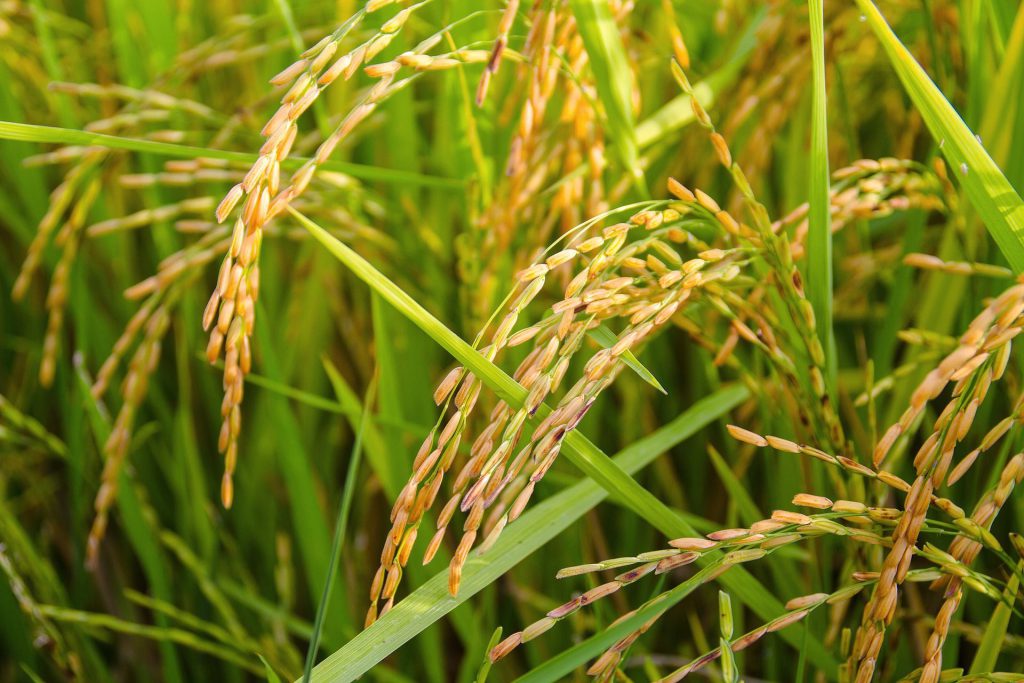

Disease-Resistant Crops
We are safeguarding important crops against dangerous pathogens.
Banana, cacao, and wheat — three of the world’s most important and beloved crops — are threatened by disease. IGI researchers are working to make them resistant to these dangerous pathogens, while developing technology that can be used more broadly to induce disease resistance in these and other important crop plants.
Precision Microbiome Editing
We are developing a suite of new techniques for precise control of microbiomes.
IGI researchers are developing new tools to allow targeted genome editing directly within complex microbial communities. In agriculture, this could have important impacts in soil health, reducing emissions, carbon sequestration, and more.

